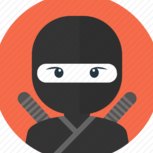Hi, I am a student of B.E (or B. Tech) in Computer Science and I have completed 2 years of my engineering. I intend on having a serious career in game development. However, I am unable to decide where to start learning. I desire to make a game and deploy it as my final years project but I will have to learn many of the concepts as I don't have a team or any support (like an indie developer). After a lot of research, I continue to be perplexed as some suggest Python, and some suggest C++, and some say Unity 3D engine would be the best way. It seemed at first that Unity would be a good idea, but then another obstacle came along. I realised that I need to know 3D modelling before starting with Unity, as most of the resources on web (or books) seem to be teaching only how to use the engines tools, which I know I would have to learn in case I opt for Unity but what about the 3D assets. Further research indicated that I should use blender for modelling 3D assets. However, because of scattered sources of knowledge and huge spectrum of options, I need some guidance. I would be extremely appreciative of anyone who could tell me where I should start learning game development. Also, where can I find good sources on the web (or books) both free or paid.
Additional Details : I am not much of a graphics person. I only wish to learn extremely basic modelling (Minecraft like graphics FTW! ![]() ). But I wish to work as if I might form an indie studio someday, as I am from India and opportunity in game development is scarce here.
). But I wish to work as if I might form an indie studio someday, as I am from India and opportunity in game development is scarce here.
Edited :
I know programming in C and Java SE. I am quite clear with the concepts of OOP, data structures, algorithm designing and mathematical structures. (Also, I understand the basics of linear algebra) I don't think C++ would be hard for me if that is something you guys are wondering. Though you all seem to be very helpful, but somehow I am even more confused than I was before. I am also thinking of giving GRE entrance exam for doing M.S. in United States. Would doing that be a good choice in case I want a career in gamedev?







